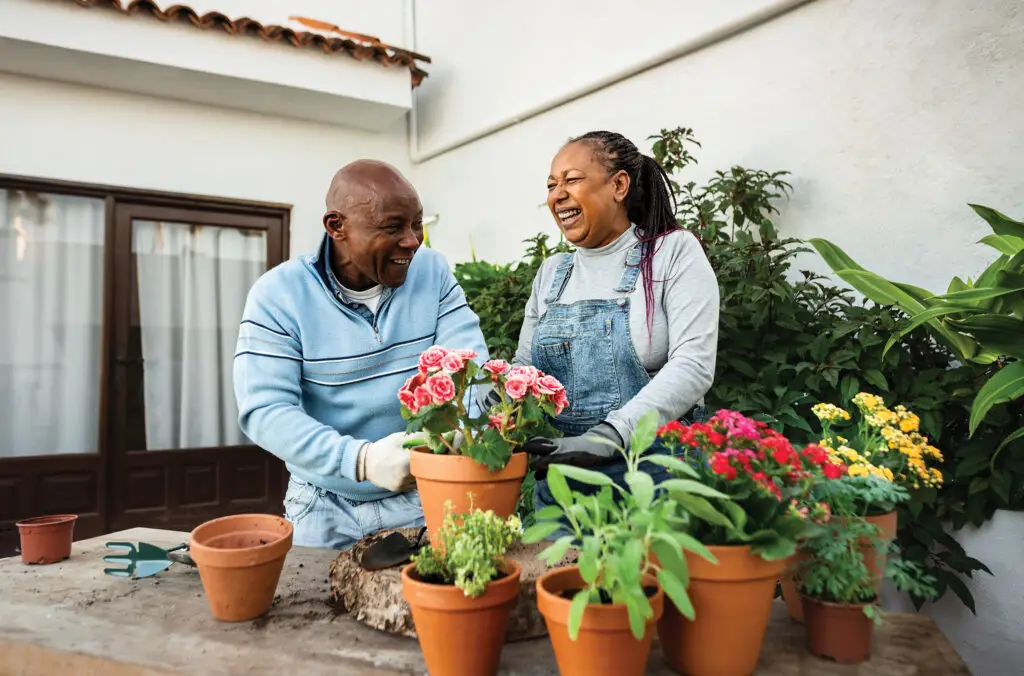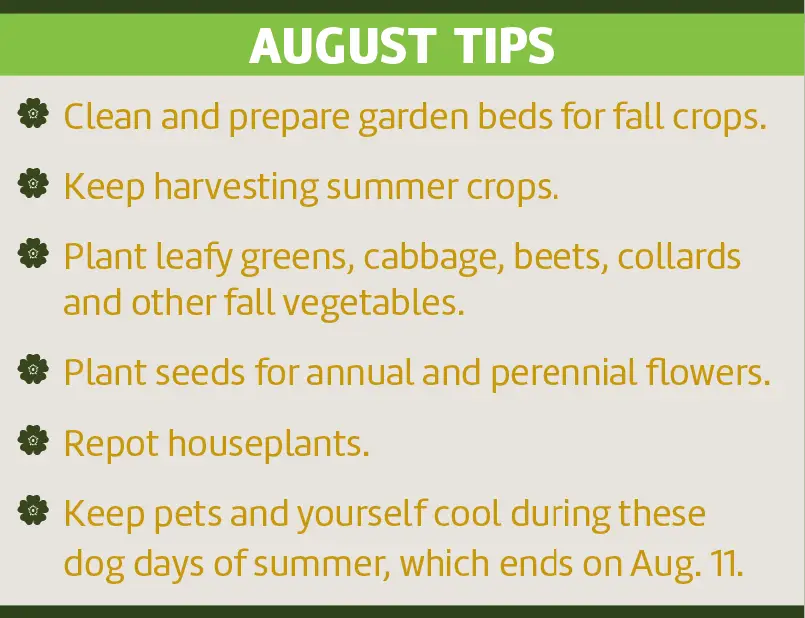The therapeutic benefits of gardens and nature

Wellness thrives in the out-of-doors.
Anyone who loves to garden, work in the yard or spend time in nature no doubt already understands how beneficial working and playing outside can be for the body, mind and soul. Those benefits are backed up by lots of science, too.
Gardening and other outdoor activities help burn calories, strengthen muscles and bones, improve balance and flexibility and can reduce inflammation in our bodies. All that sunshine we absorb can boost Vitamin D levels, and just breathing in fresh air can help clean our lungs, lower our heart rates and improve our digestion. And if the garden happens to yield nutritious and delicious fruits and vegetables, that’s icing on the proverbial cake.
Mentally and emotionally, gardens and nature provide a much-needed balance in our all-too busy lives, which can help reduce stress, anxiety and depression. Digging in the dirt can also improve our moods, a benefit that recent studies indicate may be caused, at least in part, beneficial soil bacteria that elevate serotonin levels in our bodies.
In addition, gardening or exploring nature keeps our minds active and stimulated, which can help protect against cognitive declines, including dementia. It also encourages mindfulness, creativity, self-expression, spiritual connections and can increase our confidence and self-esteem.
These activities can also provide social connections and build relationships across cultures, which in turn can reduce loneliness and increase understanding and cohesiveness in our communities.

Of course, none of this is really new news. Humankind has recognized the healing, transformative powers of gardens and nature for thousands of years. During the 1800s western medical doctors began to see the value of gardens for mental and physical recovery and began using it to treat a variety of conditions. Today, more and more healthcare and treatment centers have installed gardens and natural spaces to help patients, their family members, staff and visitors cope with and recover from an array of physical, emotional, mental and social injuries and conditions.
According to the American Horticultural Therapy Association (ahta.org) therapeutic gardens fall into five main categories:
- Healing gardens that focus on physical, mental and emotional recovery;
- Enabling gardens that provide quiet, stress-reducing environments for people working through difficult life events;
- Meditative gardens that are designed to rejuvenate and restore emotional and psychological balance;
- Rehabilitative gardens that focus on the intersection of human healing and healing the environment;
- Restorative gardens, which help reduce stress and restore calmness after traumatic events.
Yep, there’s a therapeutic garden option for almost any situation—take, for example, the 20 million Americans who took up gardening in 2020 as a way to cope with the COVID-19 pandemic. Starting one can be easy, too, though experts suggest starting out with a clear plan, and that begins with knowing what you’re seeking in the garden. Do you want the space to nurture your body, mind or soul? Is it to be a place of quiet meditation or a place for lively social interaction?
Once you have a vision, it’s time to pick your plants, which are at the heart of any therapeutic garden. Consider plants that engage some, if not all, of the five senses (sight, sound, smell, touch and taste) and ones that will attract butterflies, birds and other wildlife into the space. Add a water feature, natural stones, seashells, driftwood and other nature-focused or serenity-inducing touches to create the vibe you want.
More detailed guidelines and ideas on creating a therapeutic garden can be found through the National Garden Bureau (ngb.org), KidsGardening (kidsgardening.org) and through other online resources. And if all that is more than you want to take on, just go where wellness thrives: Outside.
Katie Jackson is a freelance writer and editor based in Opelika, Alabama. Contact her at [email protected].




